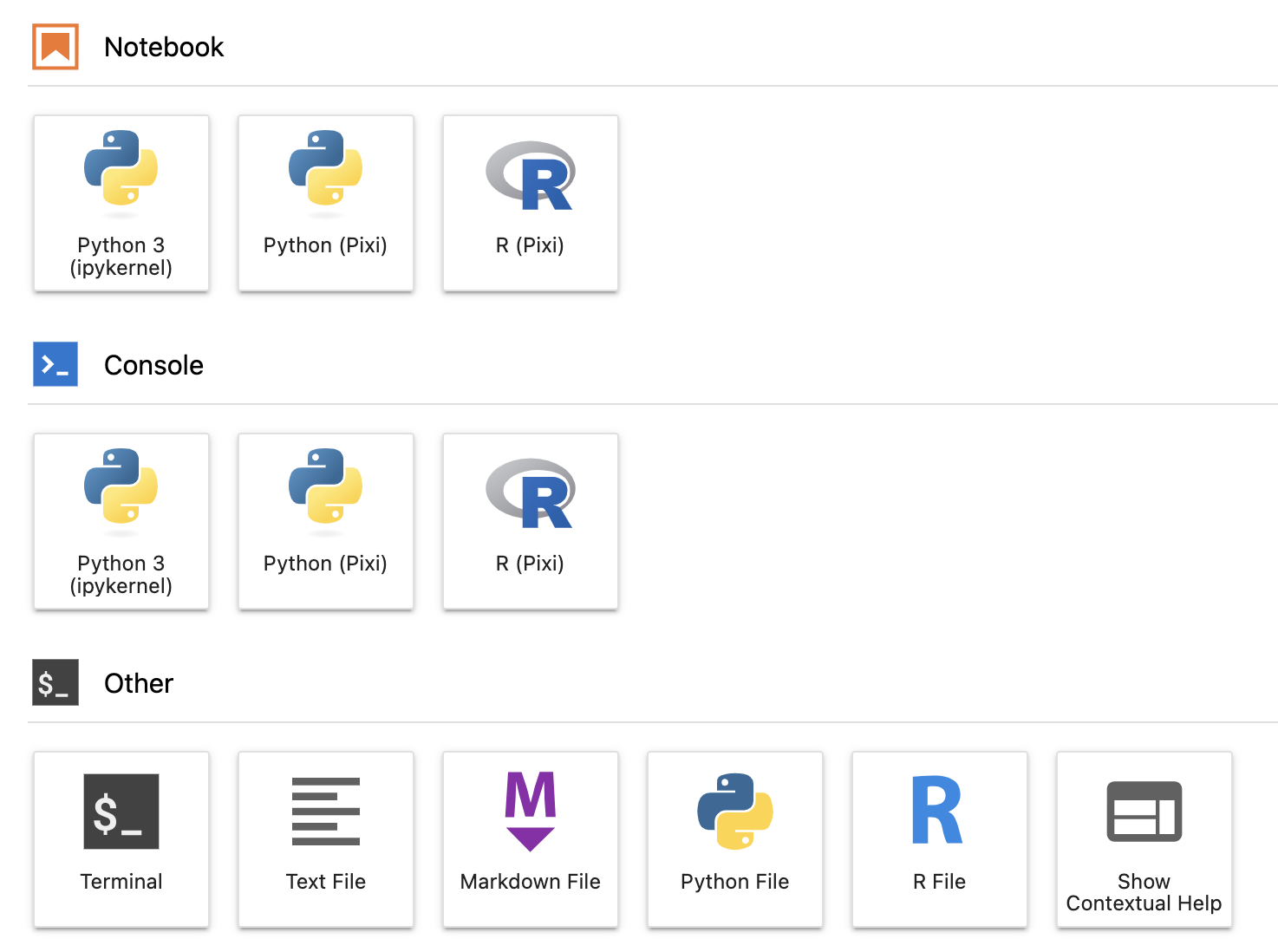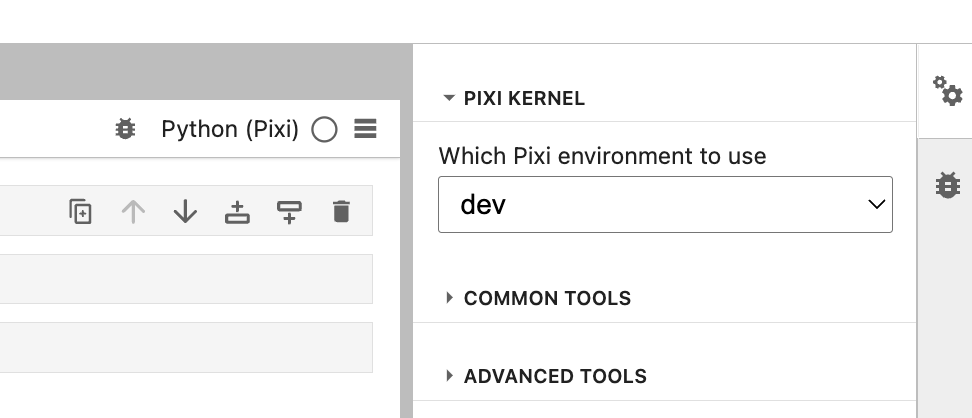https://github.com/renan-r-santos/pixi-kernel
Jupyter kernels using Pixi for reproducible notebooks
https://github.com/renan-r-santos/pixi-kernel
jupyter jupyterlab pixi
Last synced: 4 months ago
JSON representation
Jupyter kernels using Pixi for reproducible notebooks
- Host: GitHub
- URL: https://github.com/renan-r-santos/pixi-kernel
- Owner: renan-r-santos
- License: mit
- Created: 2024-04-02T23:29:58.000Z (over 1 year ago)
- Default Branch: main
- Last Pushed: 2025-04-12T15:29:18.000Z (6 months ago)
- Last Synced: 2025-05-14T02:38:23.168Z (5 months ago)
- Topics: jupyter, jupyterlab, pixi
- Language: Python
- Homepage:
- Size: 2.74 MB
- Stars: 40
- Watchers: 2
- Forks: 2
- Open Issues: 1
-
Metadata Files:
- Readme: README.md
- Contributing: CONTRIBUTING.md
- License: LICENSE
Awesome Lists containing this project
README
# Pixi kernel
[](https://pypi.python.org/pypi/pixi-kernel)
[](https://pypi.python.org/pypi/pixi-kernel)
[](https://pypi.python.org/pypi/pixi-kernel)
[](https://github.com/renan-r-santos/pixi-kernel/actions)
[](https://codecov.io/gh/renan-r-santos/pixi-kernel)
[](https://github.com/astral-sh/uv)
[](https://github.com/astral-sh/ruff)
Per-directory Pixi environments with multi-language Jupyter kernels.

Pixi kernel supports Jupyterlab 4, Python 3.9+ and Pixi 0.30.0+ using `pyproject.toml` and
`pixi.toml` configurations.
**Disclaimer**: _This project is not affiliated with Pixi, and not an official Pixi plugin._
## Quick Start
This assumes you want a Python kernel. For other languages, check the [Kernel
support](#kernel-support) table and replace `ipykernel` with the desired kernel package.
1. Install Pixi and `pixi-kernel` alongside JupyterLab using your favorite package manager.
2. Restart JupyterLab.
3. Create a new directory and initialize a Pixi project with `pixi init` and `pixi add ipykernel`.
4. Restart the kernel and you are good to go.
See the [Pixi docs](https://pixi.sh/latest/) for more information on how to use Pixi.
## Kernel support
Pixi kernel supports the following kernels:
| Language | Kernel | Package name |
| -------- | -------------- | -------------------------------------------------- |
| Python | IPython Kernel | [ipykernel](https://github.com/ipython/ipykernel) |
| R | IR Kernel | [r-irkernel](https://github.com/IRkernel/IRkernel) |
Support for other kernels and languages can be added by opening an issue or a pull request, see
[CONTRIBUTING](CONTRIBUTING.md#adding-support-for-new-kernels).
## Pixi environments
Pixi kernel supports multiple Pixi environments in a single Pixi project. To select a specific
environment, use JupyterLab property inspector, save your notebook and restart your kernel.

## Limitations
Pixi kernel only works with the default environment in VSCode.
## Related
- [Pyproject Local Jupyter Kernel](https://github.com/bluss/pyproject-local-kernel)
- [Poetry-kernel](https://github.com/pathbird/poetry-kernel)
- [Python Local .venv Kernel](https://github.com/goerz/python-localvenv-kernel)